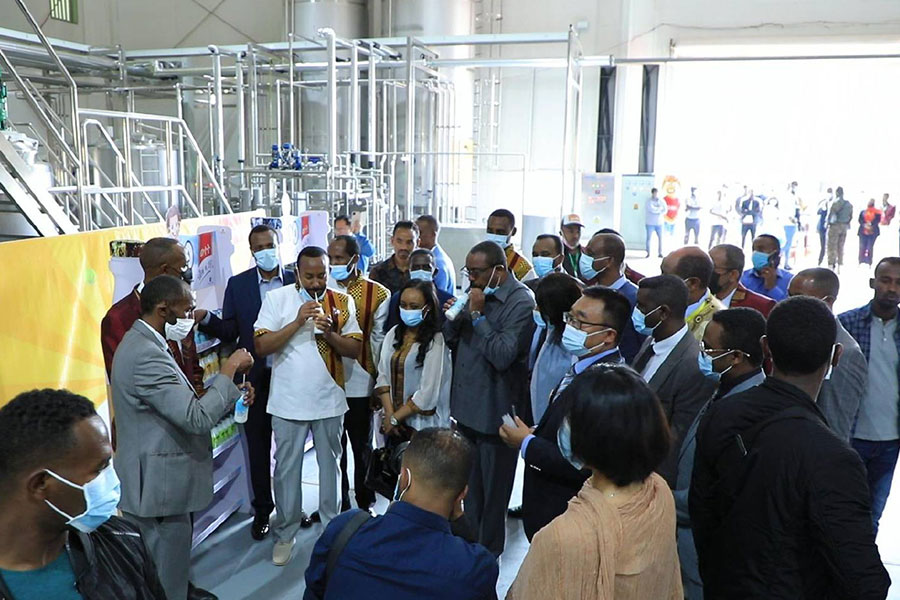
Commentaries | Oct 08,2022
Oct 21 , 2023.
In the ornate chambers of Ethiopia’s Ministry of Education, on Adwa St., a somewhat paradoxical annual event is taking shape.
Berhanu Nega (PhD), once a rebel leader, now adorns the role of the Minister and has taken it upon himself to deliver the national examination results with a spirited, almost jovial, bravado. But the numbers he announces, to put it mildly, do not correspond with his mood. They are deeply flawed and troubling.
Over the previous two years, of the 1.7 million students that sat for university entrance examinations, a paltry 55,000 surpassed the passing threshold. This signifies a 0.5 percentage point drop from the preceding year. For the discerning observer, the statistics are not just a reflection of individual student performance. They highlight an education system in turmoil.
What makes this particularly perplexing is the staggering number of schools, 1,328 to be exact, that did not produce a single student with passing marks.
It should raise a disconcerting query: is the issue merely a deviation from the national curriculum, or does the problem run deeper?
The recent School Leaving Exam results, where only 3.2pc of 845,000 candidates managed passing grades, illustrate the problem. More than four in 10 schools recorded not a single pass. While there are outliers — notably some boarding schools boasting a 100pc pass rate — they are the exception, not the norm.
To add a layer of context, just the previous year, of the 896,520 students who undertook the same examination, a mere 3.3pc scored above 50pc, just about giving them the semblance of hope for a university education.
This bleak landscape presents a puzzling situation for Ethiopian higher education institutions, especially since many of the 45 universities have burgeoned in recent times, buoyed by the aspirations of a young and vibrant populace. Now, with declining student qualifications, they face the spectre of infrastructural wastage and underutilisation.
The Ministry’s solution, albeit well-intentioned, has been to deploy remedial examinations. It is a noble effort, but it is met with criticism. Experts argue it is a superficial fix, akin to placing a plaster over a gushing wound. The root causes, they insist, transcend examination metrics.
The Ministry’s thrust towards modernising through digitising the Ethiopian School Leaving Exam can be taken as a commendable stride. But, there could be a looming danger of emphasising technology as the ultimate elixir. While potentially valuable, this focus on the digital must not eclipse the true essence of pedagogy.
Experts argue the priority should be nurturing cognitive capacities. The ancient rote learning method, still rampant in many systems, needs an overhaul to encourage understanding and critical thought.
Successive Ethiopian leaders recognised the monumental force of education as indispensable for national progress. From the times of Emperor Haileselassie to modern-day tertiary education expansions, their conviction in the transformative power of schooling has been impressive. Yet, the tangible dividends in terms of socio-economic advancement have been, at best, lukewarm.
On the global stage, the catalytic prowess of education is undeniable. The rapid rise of economies like South Korea and Singapore in the latter half of the 20th Century, often termed the “East Asian Miracle”, stands as a testament. China’s formidable global ascent owes much to its prioritisation of education.
Yet, in Ethiopia, the narrative often circles back to a critique of Western educational paradigms. Critics lament the transplantation of these systems sans local adaptation. The country’s reverence for academic titles frequently overshadows the significance of vocational training, a critical balance for a productive workforce.
As new students gear up for a fresh academic year, there is an urgent need to reimagine the ethos and mechanics of Ethiopian education. The emphasis should seamlessly blend technology and a mindset that values intellectual prowess over mere grades.
A curriculum that mirrors the country’s socio-economic aspirations, fused with judicious technological integration, could hold the key. The stakes, it must be said, are colossal. But with a thoughtful strategy, Ethiopia is poised at a crossroads, one that could enable its youth to be global contenders.
When a colossal number of schools, 1,328 to be precise, fail to produce a single passing student, it is less a reflection on the students and more an indictment of the education system. To say that the ‘Reformists’ notion that changing testing venues might be the silver bullet seems a tad simplistic.
A thorough overhaul that looks deep into local curricula, teacher capacity, and equipping students with marketable skills is crucial. The current scenario of evaluating millions through a singular stringent exam metric appears neither equitable nor sustainable. It is time for a holistic educational reform, not a mere juggle at the periphery that risks a generation.
While there is an espousal of educational reform, tangible measures, especially in augmenting teacher or school capacities, seem scant. The disconnect between grassroots education and national testing is stark.
Parents wrestle with these difficulties, unable to meet the financial burdens of schooling and the diminishing prospect of tertiary education for their children.
Without a viable alternative skills market for the multitudes excluded from formal higher education, a burgeoning cohort of unemployed youth looms large. The current curriculum and infrastructure of the Technical Vocational Education Training (TVET) seem outdated and not aligned with contemporary labour market demands. A lopsided focus on one component of a vast educational structure threatens the unemployment metrics and the reservoir of skilled labour.
As much investment and focus must go into preparing students for their academic endeavours as goes into testing them. The clarion call is for meaningfully encompassing policy reforms.
PUBLISHED ON
Oct 21,2023 [ VOL
24 , NO
1225]

Commentaries | Oct 08,2022

Commentaries | Dec 17,2022

Life Matters | Jun 15,2019

Radar | Nov 11,2023

Sunday with Eden | Jul 25,2020

Fortune News | Mar 13,2021

Fortune News | May 11,2019

Radar | Mar 26,2022

Featured | Sep 04,2021

Radar | Apr 15,2024

Photo Gallery | 174848 Views | May 06,2019

Photo Gallery | 165069 Views | Apr 26,2019

Photo Gallery | 155328 Views | Oct 06,2021

My Opinion | 136733 Views | Aug 14,2021

Dec 22 , 2024 . By TIZITA SHEWAFERAW
Charged with transforming colossal state-owned enterprises into modern and competitiv...

Aug 18 , 2024 . By AKSAH ITALO
Although predictable Yonas Zerihun's job in the ride-hailing service is not immune to...

Jul 28 , 2024 . By TIZITA SHEWAFERAW
Unhabitual, perhaps too many, Samuel Gebreyohannes, 38, used to occasionally enjoy a couple of beers at breakfast. However, he recently swit...

Jul 13 , 2024 . By AKSAH ITALO
Investors who rely on tractors, trucks, and field vehicles for commuting, transporting commodities, and f...

Oct 18 , 2025 . By NAHOM AYELE
In a sweeping reform that upends nearly a decade of uniform health insurance contribu...

Oct 18 , 2025 . By BEZAWIT HULUAGER
A bill that could transform the nutritional state sits in a limbo, even as the countr...

Oct 18 , 2025 . By SURAFEL MULUGETA
A long-planned directive to curb carbon emissions from fossil-fuel-powered vehicles h...

Oct 18 , 2025 . By BEZAWIT HULUAGER
Transaction advisors working with companies that hold over a quarter of a billion Bir...